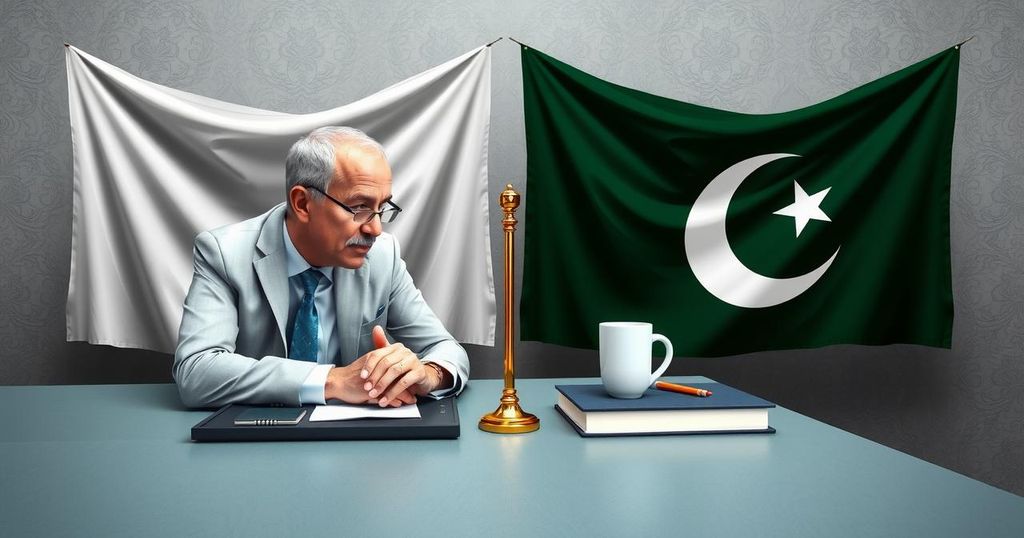Economic Reform: Lessons from Javier Milei’s Argentina for Pakistan
Javier Milei has transformed Argentina’s economy, drastically reducing inflation from 211% to single digits, while calls arise in Pakistan for similar leadership. While his economic strategies show promise, his views on international issues and economic history warrant critical assessment. The article explores the implications of his approaches for Pakistan’s economic landscape.
In various respects, Argentina resembles Pakistan, having transitioned from a leading economy in South America to experiencing prolonged economic turmoil, often relying on assistance from the International Monetary Fund (IMF). Recently, however, Javier Milei has emerged as a prominent political figure, succeeding in restructuring the economy significantly within a year of his presidency. Notably, the rampant inflation that plagued Argentinians, recorded at an alarming 211 percent in December 2023, has been remarkably reduced to single-digit figures, contrasting sharply with the widespread difficulties faced under prior conditions.
Milei’s administrative approach prioritizes decreasing government size and deregulating economic sectors, strategies which resonate with many advocates for economic reform worldwide, including in Pakistan, where there are calls for a similar reformist leader. His popular podcasts reveal insights into his economic strategies, particularly his methods for minimizing bureaucratic overreach and addressing fiscal deficits that have historically hindered progress in Argentina.
Among Milei’s notable observations is the pivotal role of reducing inflation and dismantling price controls to safeguard purchasing power, thereby lowering poverty rates. Further, he critiques taxpayer-funded contracts which he argues breed corruption, revealing a keen awareness of systemic obstacles in media and governance that are equally prevalent in Pakistan.
However, despite his economic acumen, Milei’s views on certain geopolitical issues provoke concern; his characterization of the United States and Israel as ‘liberal democracies’ starkly contrasts with his advocacy for freedom. Moreover, his historical analysis, such as claiming that the Industrial Revolution improved quality of life beyond that experienced under Roman emperors, is untenable when considering the harsh realities depicted by contemporary authors like Charles Dickens.
Milei’s references to economic theorists lack nuance, for example, misrepresenting Adam Smith’s contributions and endorsing flawed interpretations of Austrian economics. His advocacy for ‘dollarization’ raises questions about sovereignty over Argentina’s monetary policy. In discussing potential reform in Pakistan, there remains an evident need for a leader with a comprehensive grasp of economic intricacies while avoiding the biases and errors seen in Milei’s perspectives.
In context, Pakistan stands to benefit from an assertive leader capable of navigating regulatory complexities, yet it must safeguard against ideologies grounded in misunderstandings of economic history and international dynamics.
Ultimately, while Milei’s era could forge a path of economic revitalization, it warrants a discerning examination of both his methods and philosophical underpinnings, ensuring that any pursuit of growth does not compromise the integrity of economic principles or freedom itself.
The article discusses the economic transformations in Argentina under President Javier Milei, highlighting parallels with Pakistan’s own economic struggles. Milei’s policies have led to significant changes in Argentina’s inflation rates and government structure. The author emphasizes the potential need for a similar figure in Pakistan while critiquing Milei’s viewpoints on various socioeconomic and geopolitical issues, advocating for a more nuanced understanding of economic history.
In conclusion, the urgent reforms needed in Pakistan echo the drastic measures taken by Javier Milei in Argentina. While his economic strategies might serve as an inspiration, they should be scrutinized carefully to avoid pitfalls associated with biased perspectives and oversimplified economic theories. The future of Pakistan’s economy requires a leader who can effectively address complexity without succumbing to errors of judgement.
Original Source: www.dawn.com




Post Comment